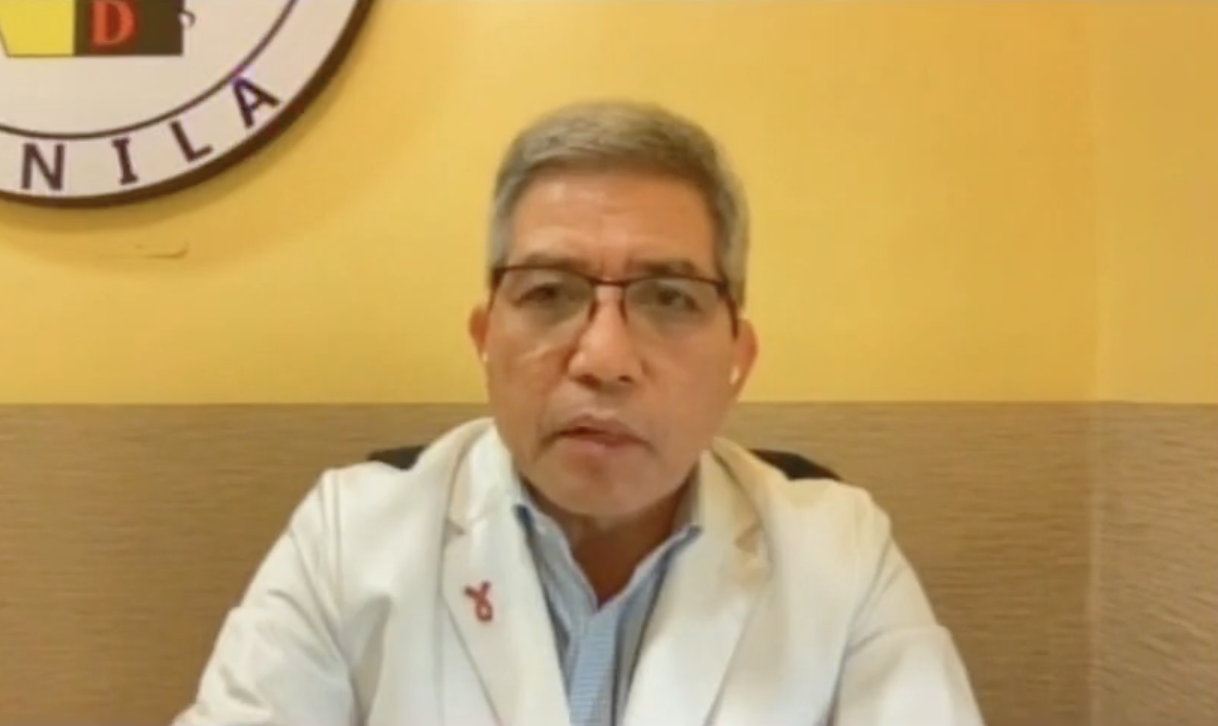
Infectious Disease expert Dr. Rontgene Solante during the Laging Handa press briefing. Screengrab from PCOO / Facebook
The Philippines is ready to deal with COVID-19 should the state of public health emergency that the government imposed more than two years ago in response to the pandemic be lifted, an infectious diseases specialist said on Wednesday.
“Yes, I think the Philippines is ready by the time [the state of] public health emergency is removed. And it was proven for several months or even more than a year already, that despite the waves [of infections], our hospitals and communities are not threatened by many deaths,” Dr. Rontgene Solante said in an interview over the Laging Handa public briefing.
Solante said that health-care facilities now really know how to manage COVID-19.
Solante, a member of the government’s vaccine expert panel, said preparations for the lifting of the state of public health emergency should be two-fold: increasing the boostered population and strengthening COVID-19 surveillance to detect the presence of existing variants of concern and other emerging variants.
“We are not saying there’s no more COVID. If ever the public health emergency is lifted, it’s because the cases are already manageable, hospitals are not getting filled up and many have been vaccinated. But COVID is still here in the community,” he said.
He pointed out that the daily COVID-19 cases in the country a few weeks after the holiday season seemed to have “stabilized” at less than 1,000.
“This is good news because this means, I think, that we have attained the most important [thing] which is population immunity at this point in time, because many have already received the primary vaccine series and may have also been infected [and recovered and acquired natural immunity], so we have hybrid immunity,” he said.
He said the Department of Health’s projection of 700 cases daily by February might already be unlikely because the number of cases has not risen despite the holiday gatherings and popular religious events such as the Black Nazarene processions and the Sinulog festival.